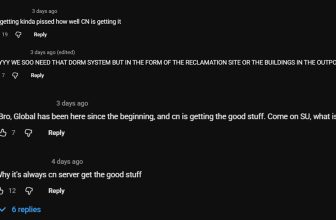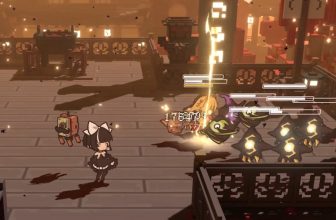
Malaysia Esports Federation (MESF) KPL Interview — How Malaysia is Shaping Mobile Esports and Youth Talent
The Malaysian esports scene has grown significantly in recent years, particularly in the mobile gaming sector. To explore how the country is cultivating talent and structuring its competitive ecosystem, we sat down with Malaysia Esports Federation (MESF) President Muhammad Naim Al Amin during the King Pro League 2025 (KPL 2025) to discuss priorities, public perception, and future plans.
Building a Sustainable Esports Ecosystem

When we asked Naim about MESF’s current priorities and long-term goals, he highlighted the importance of supporting the ecosystem as a whole. “We are really grateful to be chosen as one of the nations to build an ecosystem for Honor of Kings, especially,” he said. “For grassroots development and high-performance athletes, full support is needed—not just from the federation or government, but also from publishers. That’s why we’re extending collaborations and investments to ensure talent development can be sustained.”
He emphasized that a strong ecosystem goes beyond competitions, requiring coordinated efforts from multiple stakeholders to create lasting opportunities for Malaysian players.
The Rise of Mobile Esports in Malaysia
On the topic of mobile esports growth, Naim acknowledged the challenges of changing societal perception. Many people still view esports as “just a game,” he said, and efforts are needed to educate the public on its legitimacy. Malaysia’s official recognition of esports as a sport in 2023—and its elevation to primary sport status in 2025—marks a significant step forward. “Out of 103 sports recognized by the Ministry of Youth and Sport, only 20 are primary sports—and esports is now one of them,” he explained.
He also noted the benefits of this recognition: “Support now extends beyond the Ministry of Youth and Sport to the Ministry of Education and Higher Education, and we are open to international collaboration through the Ministry of Foreign Affairs. Next year, we’ll be entering school championships and tournaments, focusing not just on the games but also on teaching healthy gaming practices to our athletes.”
Esports as a Career Path

We asked Naim how MESF views the role of esports in youth employment and the creative industry. He explained that accreditation and licensing are key to professionalizing the sector. “Many in the esports industry currently lack certification, which makes negotiating salaries or contracts difficult,” he said. “By working with publishers to recognize and license players, we can ensure more sustainable career paths. Licenses and accreditation provide structure and open opportunities for growth in esports careers.”
Shifting Perceptions Through Competitions
Finally, we discussed the impact of major events like the SEA Games, Asian Games, and Malaysia’s National Sports Games on public perception. Naim believes these competitions have been crucial in legitimizing esports. “Being part of the National Games for under-21 athletes, held every two years, helps parents and society see esports as a structured and safe activity,” he said. The National Esports Development Guideline (NESDEG), approved by the government, also helps build trust and confidence among families, ensuring esports participation is recognized as a positive pathway.
Honor of Kings’ Rapid Growth Among Malaysian Youth

When asked about how Honor of Kings took off among Malaysian players, Naim pointed to mobile accessibility and strong infrastructure. “Mobile games are easy to access and free to play, and our internet connectivity is solid. Combine that with grassroots initiatives like the Malaysian Esports League, and it naturally draws in more players,” he said.
He went on to explain the clear pathways for young talent. Junior Cups in schools and the Malaysia Varsity Esports League for colleges allow winners to progress to professional leagues organized by the publisher. “It creates a proper journey for anyone serious about esports,” Naim added, highlighting how structured opportunities help nurture talent.
Malaysia’s Competitive Ambitions in Honor of Kings
When asked whether Malaysia could emerge as a major competitive force in Honor of Kings, Naim acknowledged the challenge of China’s decade-long head start but expressed optimism. “At the last Asian Games, Malaysia actually secured second place behind China, which was a big surprise for many,” he said.
He emphasized the steps being taken to strengthen competitive teams. Naim described plans to expand grassroots awareness, send athletes to bootcamps in China, and provide broader opportunities for young players to train seriously. “Our goal is for Malaysia to be one of the strongest regions in ASEAN,” he said confidently.
Building Strong Teams and Brands

When asked about the importance of solid esports organizations, Naim stressed sustainability and brand partnerships. Some HoK teams struggle financially, so MESF connects them with bigger brands and established teams to grow their fanbase and monetize through merchandise or streaming.
Government initiatives also play a role. Through programs like the Malaysia Accelerator Program (MEAP), teams can access funds for international competitions, bringing along assistant coaches, analysts, and media personnel. “This ensures teams have the support they need to compete at the highest level,” Naim explained.
Government Plans and the Future of Malaysian Esports
Looking ahead, Naim shared MESF’s long-term vision. When asked about post-2025 plans, he outlined the continuation of the National Esports Blueprint through 2030. The blueprint includes building Malaysia’s first dedicated e-stadium, maintaining special funds for esports development, and integrating education and job creation into the ecosystem.
He added that technical and vocational education will play a key role in preparing future talent. “We want parents and society to see esports as a legitimate career path, not just a hobby. Our esports academies will help train the next generation of professional players,” he said.
Training and Professional Academies

When asked if Malaysia could eventually have the same systematic training bases as China, Naim admitted it would require significant investment but expressed hope. Plans for esports academies are underway to prepare young talents for professional competition. “This shows parents and society that esports is more than just playing games in cafes—it’s a serious, professional pathway for the next generation,” he concluded.






